CCT has the updates on alumni making headlines during these unprecedented times.
Columbia College | Columbia University in the City of New York
This website uses cookies as well as similar tools and technologies to understand visitors’ experiences. By continuing to use this website, you consent to Columbia University’s usage of cookies and similar technologies, in accordance with the Columbia University Website Cookie Notice.
CCT has the updates on alumni making headlines during these unprecedented times.
The New York Times has created a section, “Notes from Our Homes to Yours,” in which its staff contributes “suggestions, lists, distractions and quarantine diaries” about what they are doing during the COVID-19 pandemic. Domestic Correspondent Nellie Bowles ’10 wrote “Where I moved after coronavirus,” in which she describes her habit of looking at Google Maps and Zillow and imagining life somewhere else.
On May 20, The New York Times ran Sarah Maslin Nir ’08, JRN’10’s article “They Beat the Virus. Now They Feel Like Outcasts.” The piece describes how some people who have recovered from COVID-19 are facing stigma and fear in their communities.
Amanda Weiss ’17, SW’20; Jennifer Strauss ’16; and Danni Spencer-Laitt SW’20 recently co-founded a nonprofit startup, WH SeniorLink, which aims to alleviate social isolation among older New Yorkers during the COVID-19 pandemic. Per the website, the goal is to “create a directory of seniors looking for social interaction; create resource lists of services (with versions in Spanish and English) available to seniors who are social distancing; create a network of English- and Spanish-speaking volunteers to ‘buddy’ with seniors and provide a care package, weekly phone call, and a fortnightly letter; [and] facilitate friend match-making for seniors to pair with another senior for mutual support.
Rep. Jerry Nadler ’69 (D–N.Y) is hosting a telephone town hall on Monday, May 11, at 6:00 PM ET. From the announcement: “During the town hall, I’ll share useful resources available to New Yorkers impacted by the pandemic and answer your questions about the issues and concerns important to you.”
On May 6, Stacy Rotner ’99 was profiled in The New York Post for starting GratiFoodNYC, a grassroots initiative which donates meals to frontline healthcare workers. Since then, Rotner launched a partnership with New York Common Pantry to address and fundraise for food insecurity in New York City. GratiFoodNYC has raised nearly $170,000 since its launch on April 4.
Kern Collymore ’10 and Janene Yazzie BC’10 were recently photographed for a Navajo Times article for their work helping to get supplies to families and essential workers of the Navajo Nation during the coronavirus outbreak.
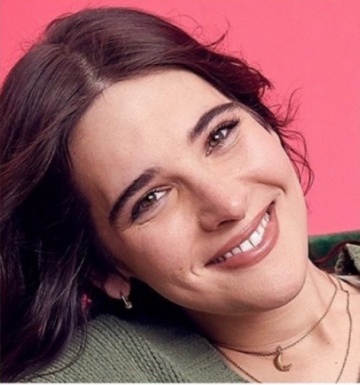
Hari Nef ’15
Dara Shapiro ’14’s work is highlighted in the April 23 HuffPost article “Grassroots Group Sends Meals To New York Health Care Workers In The Trenches.” Shapiro founded Feeding the Frontlines, which provides free, healthy meals to hospital workers using food from local restaurants. From the article: “The organization was the brainchild of Manhattan-based bank strategy associate Dara Shapiro, who had listened to friends in health care talk about how hard it was to find the time — and the food — to eat during their crushing shifts. She was also concerned about the toll on small businesses in the coronavirus outbreak. ‘I started Feeding the Frontlines to accomplish two goals: support local businesses and feed frontline health care providers hit hardest by COVID-19 in New York and New Jersey,’ she told HuffPost. ‘I felt so helpless reading the news every morning, and I wanted to do what I could to make a difference.’” Shapiro adds, “I am running the initiative with my friend Kate Christensen who is a Barnard College graduate of 2014.”
On April 17, The New York Times ran Jodi Kantor ’96’s article “When Duty Calls, and Menaces.” Kantor researched a question posed by two Chicago doctors — an ophthalmologist and a pediatric surgeon — on whether they should join the front lines of treating COVID-19 patients despite not having worked in intensive care in years. Kantor interviewed physicians and medical ethicists about the dilemma.
Chris Ahmad ’90, Beth Shubin Stein ’91 and Ken Shubin Stein ’91, founders of the non-profit organization Crutches 4 Kids (which accepts crutches for donation and recycles them to children in need around the world), have a new charitable organization. In response to the COVID-19 pandemic, they launched Frontline Heroes, a new initiative to help provide clinical staff with personal protective equipment.
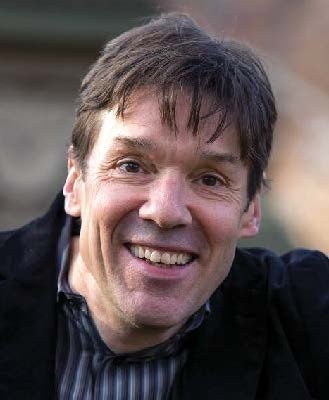
John Leland ’81
ERICA BERGER
Ashish Jha ’92, director of the Harvard Global Health Institute, appeared on MSNBC on April 16 to speak about how the United States’ economic return will rely on the availability of nasal swabs for coronavirus testing so that employees can safely go back to work.
On April 9, the Associated Press featured Jonathan Lemire ’01’s article “As pandemic deepens, Trump cycles through targets to blame.” Lemire, AP’s White House reporter, writes: “Trump has transformed the daily White House coronavirus task force briefing into a substitute for his canceled rallies, treating the James S. Brady briefing room like a stage in Ohio, Florida or Wisconsin. He has sparred with reporters, mangled facts and, at times, distanced himself from the advice of his own public health team.”
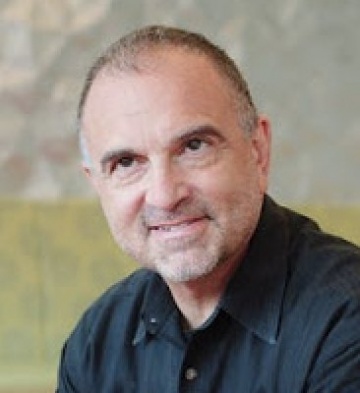
Dr. George Yancopoulos ’80, GSAS’86, PS’87
Michael Waldman ’82, president of the Brennan Center for Justice, was featured in the April 7 CNN.com article “A pandemic primary in Wisconsin offers glimpse into voting rights fight ahead.” From the article, which focuses on the difficulties faced in the recent Wisconsin primary vote: “Waldman, whose organization has pushed the federal government to spend $2 billion to prepare states to administer the November election during the pandemic, said one of his biggest concerns is that some epidemiologists believe the virus could be seasonal and return in the fall. ‘Unless we want to operate under the assumption that this will all go away, we have to prepare,’ Waldman said. ‘If we as a country don’t take action, there could be 50 Wisconsins in November. ... What Wisconsin shows is if we don’t act, it will be very hard to have an election where everyone can participate in November.’”
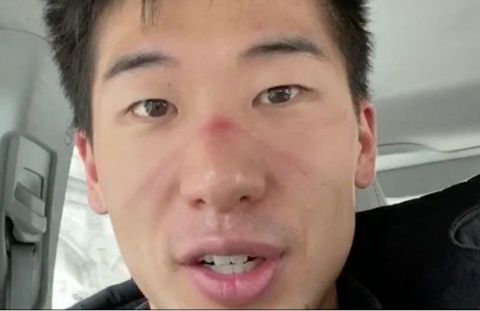
Dr. Calvin Sun ’08
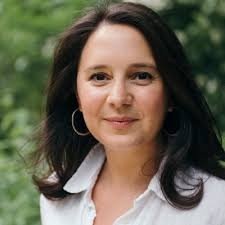
Bari Weiss ’07
The New England Patriots (owned by Robert Kraft ’63) are in the news for their efforts to supply personal protective equipment to medical teams fighting coronavirus. According to an April 2 ESPN.com article, the New England Patriots’s team plane was recently used to transport 1.2 million N95 masks from Shenzhen, China, to the United States. From the article: “‘I’d been watching Governor [Andrew] Cuomo over the last few weeks and I just think he's done an outstanding job,’ Patriots owner Robert Kraft told CNN. ‘He’s at the epicenter of this crisis, and he has a calming way about him. He brings confidence. And I have a personal tie to New York City; Columbia was good to me, and gave me a full scholarship as a kid. I love the city. I love the people there.’”
Dr. Ashish Jha ’92 of Harvard’s Global Health Institute was interviewed by NPR’s Steve Inskeep in “The Difficulties When Coronavirus Cases Flood U.S. Hospitals,” which aired on March 31.
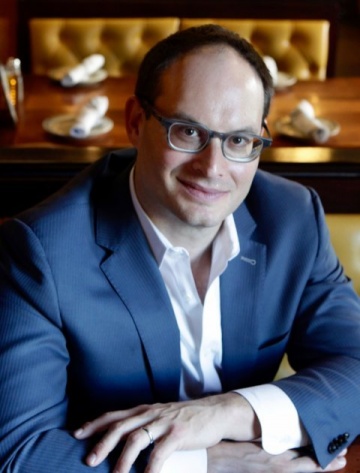
Franklin Foer ’96
EVY MAGES
Thomas Bollyky ’96 wrote “Plagues Tell Us Who We Are,” which ran in Foreign Affairs on March 28. Bollyky examines how historical disease outbreaks affected society and what the coronavirus outbreak might mean for our future.
On March 25, Dr. Murray Epstein ’59, PS’63, along with co-authors A.H. Jan Danwer and Daniel Batlle, published “Renin-angiotensin system (RAS) blockers and the COVID-19 pandemic: at present there is no evidence to abandon RAS blockers” in the American Heart Association journal Hypertension. In a University of Miami Health System press release, Epstein, an emeritus professor of medicine at the University of Miami Miller School of Medicine, encourages patients who are taking heart and kidney medications to continue taking them as prescribed, as there is no current evidence that they increase susceptibility to COVID-19.
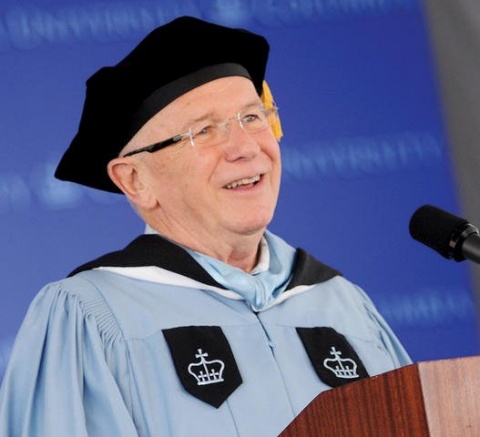
Terrence McNally ’60
EILEEN BARROSO
On March 9, Ai-Jen Poo ’96 wrote an Opinion Piece for The New York Times, “Protect Caregivers From Coronavirus.” In it, Poo, who founded the National Domestic Workers Alliance, warned of the dangers facing professional caregivers and their at-risk clients as coronavirus spreads.
Freelance journalist Robin Shulman ’96 wrote “It Took Me 3 E.R. Visits to Get a Coronavirus Test in New York,” which ran in The New York Times on March 9, early in the coronavirus outbreak. Shulman outlines the frustrations and roadblocks facing those who want a coronavirus test.
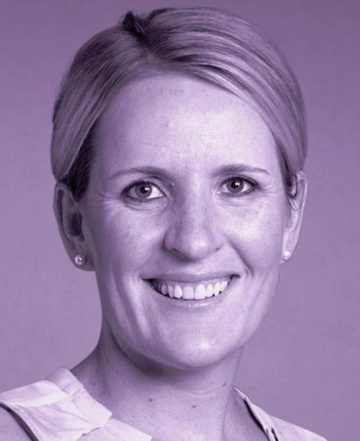
Dr. Catherine Tubridy Jamin ’00
NYU LANGONE
Many alumni have recently written for, photographed for, or been interviewed by The New York Times during the coronavirus crisis. John Leland ’81’s March 28 article “Larry Kramer, AIDS Warrior, Takes on Another Plague” profiles playwright Kramer and examines how the author’s newest work will touch on the coronavirus outbreak. Jodi Kantor ’96 wrote “No Longer Just a Walk in the Park,” a March 27 article that covers the social-distancing dilemma now faced by many: choosing between trying to stay safe during the coronavirus outbreak by staying inside, and the importance of mental health practices like taking a walk in the fresh air. Damon Winter ’97 photographed the March 25 Opinion piece "My City Is on the Brink of Disaster. Here’s What That Looks Like.” Will Heinrich ’99’s March 19 article, “Take a (Solo) Stroll. Your Next Art Fix May Be Around the Block,” reflects on small delights and architectural finds during the time of social distancing. And on March 19, Sarah Maslin Nir ’08, JRN’10, a breaking news reporter at The New York Times, was featured on The Daily, the Times’s news podcast. Maslin Nir’s episode, “One City’s Fight to Stop the Virus,” focuses on the efforts in New Rochelle, N.Y., to contain COVID-19.
Christopher Kimball ’73, who became well-known as the head of America’s Test Kitchen, is also the founder of Christopher Kimball’s Milk Street Cooking School. The school recently announced that all of its of online cooking classes would be free through the end of April during the coronavirus outbreak.

Published three times a year by Columbia College for alumni, students, faculty, parents and friends.
Columbia Alumni Center
622 W. 113th St., MC 4530, 6th Fl.
New York, NY 10025
212-851-7852
cct@columbia.edu

Columbia Alumni Center
622 W. 113th St., MC 4530, 4th Fl.
New York, NY 10025
212-851-7488
ccalumni@columbia.edu